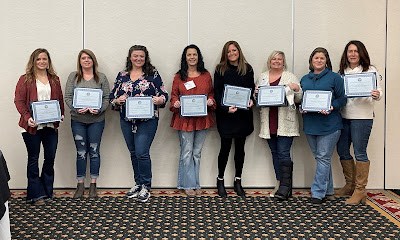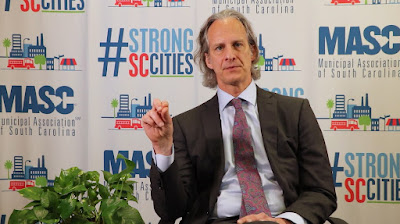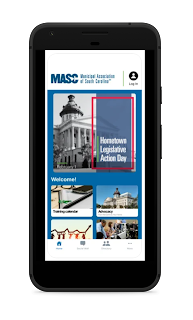- The SC Municipal Human Resources Association – The single most active listserve has recently discussed job task tests for firefighters, take-home vehicle policies as a hiring incentive for police officers, and offering Hepatitis vaccines for public safety workers.
- The SC Municipal Finance Officers, Clerks and Treasurers Association – Recent threads on the MFOCTA listserve have included which cities and towns use a convenience fee for credit card purchases at city hall, the public meetings for which cities are providing livestreaming — city council meetings, committee meetings, board meetings — and guidance for how cities should report their American Rescue Plan expenditures.
- Planning and zoning — In recent months, conversations on this listserve have included regulating donation centers within a city, setting timelines for a property with a nonconforming use under the city’s zoning to conform with the zoning code, and handling applications for vinyl wraps to be placed on the exterior of buildings in the historic district.
City Connect is the blog of the Municipal Association of SC connecting officials in the state’s 271 cities and towns with the resources and tools they need to provide efficient and cost-effective services to residents and businesses.
Thursday, June 2, 2022
Take Advantage of the Municipal Association’s Listserves
Thursday, May 19, 2022
Cities to Identify Unclaimed Funds in June
The South Carolina Uniform Unclaimed Property Act requires that all entities that hold unclaimed funds, including local governments, must work to return those funds to their owners each year. When those holding the funds cannot locate the owners of the funds, they must then send the funds to the State Treasurer’s Office, which continues the effort to find the owners. In June, municipalities should work to identify what unclaimed funds they are holding.
Municipalities may find that they are holding several types of funds, including these:
- Accounts payable – Unpaid credit balances, which can include uncashed payroll checks.
- Courts and jails – Overpaid bail bonds or leftover inmate account funds.
- Parks and recreation – Deposits for facility rentals.
- Water and sewer – Deposits left when customers end service.
The State Treasurer’s Office offers a timeline for identifying funds and handling them correctly.
- No later than June 30 – Cities must review their records for unclaimed property.
- July to October – For all unclaimed funds, cities must attempt to locate the property owner by sending the owner a notification form letter to the last address on file. The law does not require them to send a letter when there is no valid address available.
- No later than November 1 – Cities must send an electronic unclaimed property report, even if there are no outstanding funds to report, and any remittances to the State Treasurer. The State Treasurer’s website gives information on how to create reports in acceptable formats and remit funds.
The Treasurer provides the website southcarolina.findyourunclaimedproperty.com to allow users to search for funds owed to any person or business. The initiative has now returned $414 million in funds.
Thursday, April 28, 2022
Professional Municipal Clerks Week Arrives May 1 – 7
Thursday, April 14, 2022
The Municipal Association’s Field Services Team Has Expanded
Thursday, March 31, 2022
Download the New Municipal Association of SC App
Thursday, March 17, 2022
Sunshine Week Focuses on Transparency
Thursday, February 24, 2022
Statements of Economic Interest Due March 30
- purchase,
- sale,
- lease,
- contract,
- option, or
- “other form of transaction or arrangement involving property or services.”
- Elected officials
- Candidates for office
- Chief administrative officials, including for water and sewer districts
- Chief finance and chief purchasing officers
What family members should be included when reporting income?
- Spouses
- Children who reside in the household
- Anyone else claimed as a dependent
- Real estate interests, including those of immediate family members, if it could create a conflict of interest
- Public improvements (streets, lighting, water systems) valued at $200 for personal property or adjoining property
- Real or personal property sold, leased or rented to a public entity What business relationships must be reported?
- Every business or other entity in which the official or immediate family member has a 5% or greater interest in the value, so long as the value of the interest exceeds $100,000
- Any compensation received from a business that contracts with the municipality
Thursday, February 3, 2022
Civility, Relationships the Focus of 2022 Hometown Legislative Action Day
- In the law enforcement reform legislative panel, Reps. Chandra Dillard, Tommy Pope and Chris Wooten, and Sen. Shane Massey discussed current law enforcement reform proposals, such as those in H3050.
- The Municipal Association has recently expanded its focus on advocating for the interests of South Carolina’s cities and towns at the federal level. At HLAD, a federal advocacy panel discussion brought together Alyssa Leigh Richardson, state director and deputy chief of staff for U.S. Sen. Tim Scott, as well as David O’Neal, district director for U.S. Rep. Ralph Norman. The panel discussed how local government leaders can foster strong relationships with the congressional representatives.
- During the HLAD political outlook panel discussion, veteran political experts from both sides of the aisle talked about upcoming election cycles. The panel featured Reagan Kelley, director of communications and legislative policy for the South Carolina Senate Majority Caucus, and Antjuan Seawright of Blueprint Strategy, LLC.
- Aiken Mayor Rick Osbon offered the report of the Municipal Association’s legislative committee, after which the Association’s advocacy team talked through numerous key issues currently debated at the State House. Scott Slatton, director of advocacy and communications, as well as Legislative and Public Policy Advocates Joannie Nickel and Erica Wright briefed attendees on the legislative initiatives that the Municipal Association is following at the State House.
Thursday, January 27, 2022
2022 Hometown Legislative Action Day Arrives Tuesday, February 1
- Subscribe to From the Dome to Your Home, the Association’s weekly legislative report delivered by email every Friday during the session. The report takes a look at what’s happening with the Association’s Advocacy Initiatives as well as any other legislation with an impact on cities and towns.
- Listen to the City Quick Connect podcast, where the Association’s advocacy staff discuss the week’s legislative happenings during the session.
Thursday, January 6, 2022
Join or Renew With an Affiliate Association in 2022
SCASM offers quarterly training on stormwater management policies and best practices. Training addresses topics like proposed changes to stormwater regulations and case studies of innovative practices. Staff contact: Sara Whitaker

















